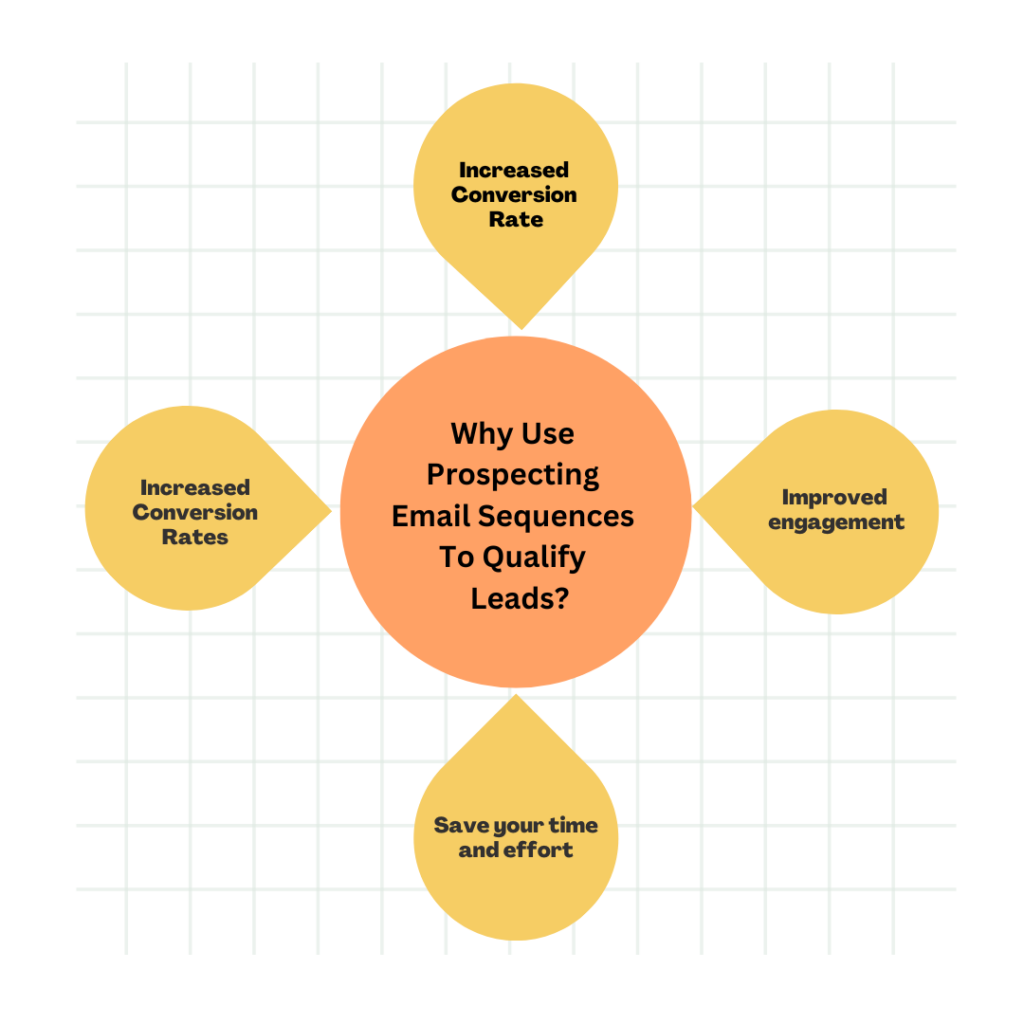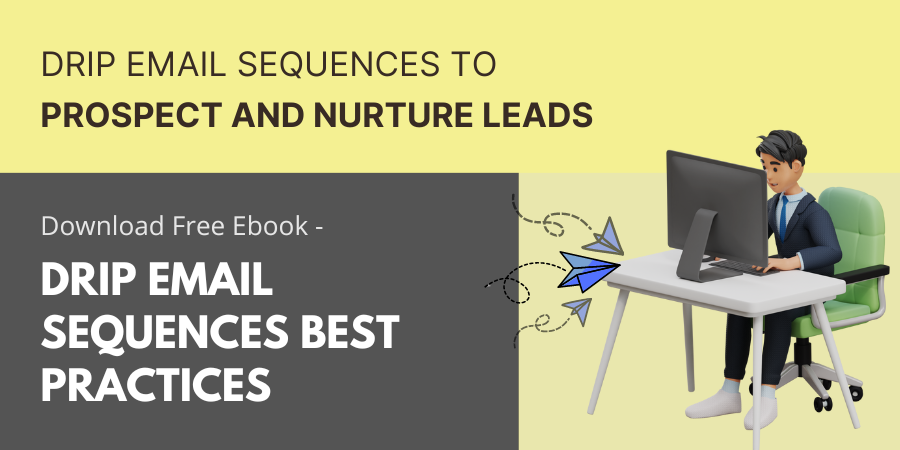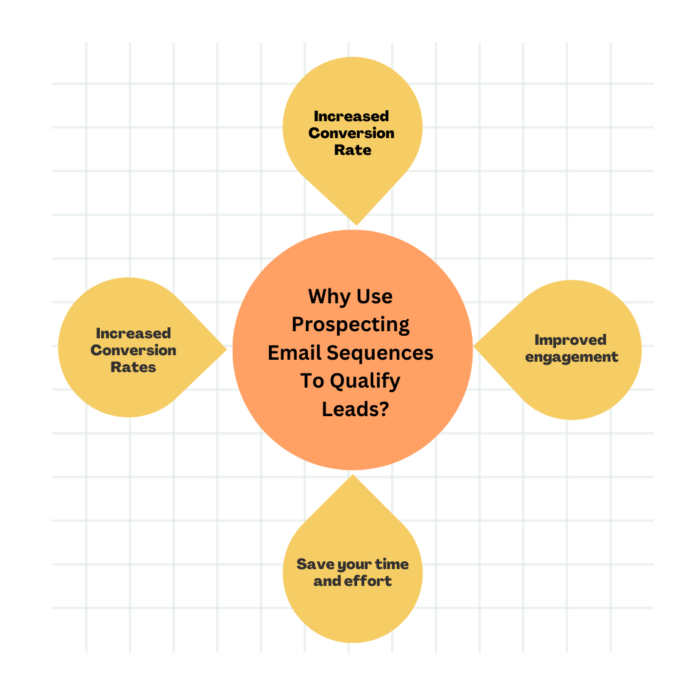Lead qualification is essential to increase conversion rates as well as save your money and efforts. You can of course do it in multiple ways but we suggest using prospecting email sequences.
However, you can only create a successful sales-driven campaign with a prospecting email sequence.
Why? Well, the answer is outlined in this post. As well as you will also know how to use prospecting email sequences to qualify leads at each stage.
So, let’s dive in.
Why should you use prospecting email sequences?

To prospect and qualify your needs, you need to understand them by asking multiple questions and providing information.
There are of course multiple ways to qualify your leads like calling, meeting them in personal, and messaging. However, the availability of your prospects is not guaranteed each time.

Additionally, you may also find it difficult to call or meet each prospect at their available time.
Hence, sending emails is the best way to do so. However, one email is not enough to understand and engage your customers. Plus, consumers won’t be interested in answering multiple questions and reading lengthy emails.
Thus, using prospecting email sequences is crucial. You can effectively distribute these emails across a number of days. Ask them questions and provide information about your product and services.
Then you can effectively analyze information, once you have the data and qualify your leads accordingly. It will help you create a more structured and targeted strategy. This will efficiently improve your engagement and increase conversion rates.
Moreover, you can also automate your email sequences with a drip email automation tool and schedule the as per your consumer’s time window. This will help you save your time and effort.
SafeMailer’s drip email automation software can help you here. It will allow you to mimic a human-like sending pattern thus increasing the success rate of your campaigns.
How to use prospecting email sequences?
Email sequences can help you identify potential customers at each stage. So, let’s explore how can you use prospecting email sequences at each of these stages and identify potential leads.
Identifying leads with email sequences at the awareness stage:
During the awareness stage, prospects are often unaware of their problem or need and may not yet be familiar with your brand or product.
Here, you can create email sequences that can help you to position your brand as a helpful resource. Here, you need to provide educational content that helps prospects understand their problem and tell them how your product or service can solve it.
Just make sure to include 4 to 6 emails in your email series as recommended by ActiveCampaign.
Tip: Include at least 5 to 6 emails in your email sequence targeting this information.
Once, your sequential email campaign is out, you can track engagement with each email and identify prospects who are becoming more interested in your brand.
This can help you increase engagement by providing more targeted content to a more targeted audience that addresses their specific needs and interests.
Now, that you which prospects are showing interest in your product or service, you can add them to your consideration stage campaign.
Using email sequences at the consideration stage:
At the consideration stage, your prospects already know their problem and are actively researching solutions to their problem.
So, here you need to create an email sequence with at least 5 to 6 emails to offer more detailed information.
You need to provide information about how your product or service can help them, answer their questions as well as provide social proof of your customers’ testimonials or case studies.
Distribute this information strategically in your email sequence and you are ready to go.
Then by tracking engagement with these emails, you can easily identify prospects who are showing more interest in your product and moving closer to the decision stage. Add them to your next campaign.
Use of prospecting email sequences at the decision stage:
During the decision stage, prospects are ready to make a purchase decision and will be comparing different options.
Here, you need to create email sequences that provide targeted promotions or discounts. This incentivizes prospects to take action and make a purchase.
Just make sure to include at least 5 emails in your email sequence campaign.
The majority of your leads will be converted by this time. Now, you need to identify those who were more likely to buy but haven’t yet purchased.
For instance, prospects who have added a product to their cart and abandoned it at the payment stage.
Then you can drive more conversions and revenue for your business by running a follow-up camping, or providing a deadline.
Conclusion:
Conclusively we can say that prospecting email sequences can be a powerful tool for identifying potential customers at each stage of the buying process.
You can easily identify prospects who are becoming more interested in your brand and product by monitoring these sequences.
This greatly helps you to nurture leads, increase engagement, and ultimately drive more conversions and revenue for your business.


Leave a Reply